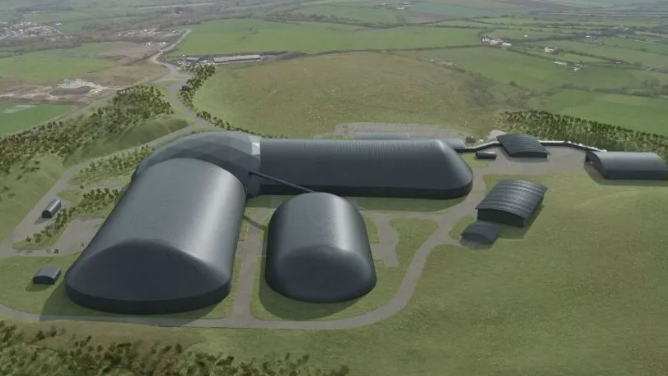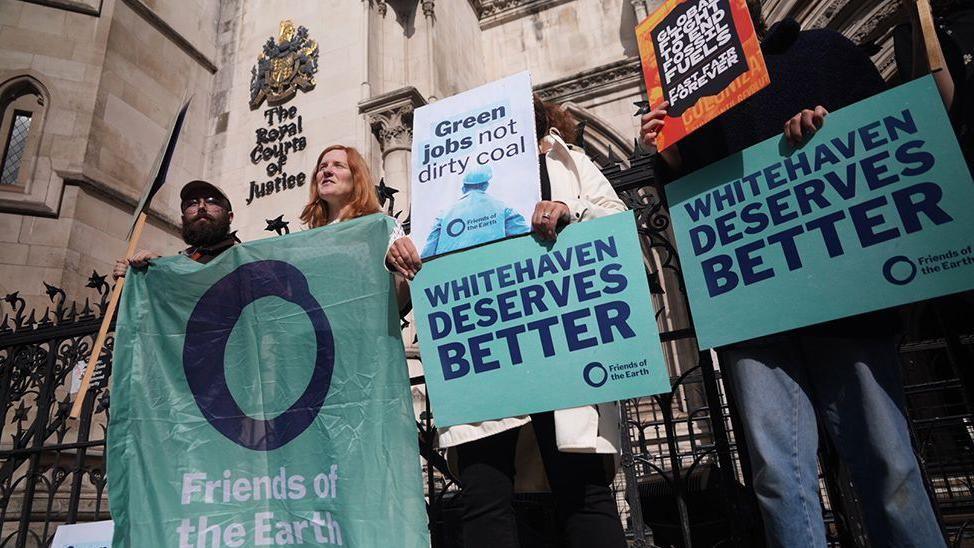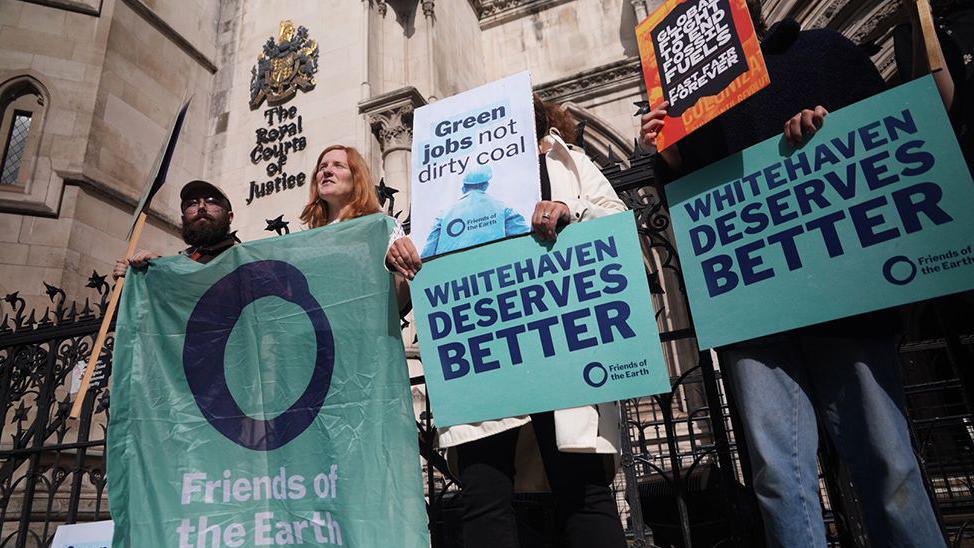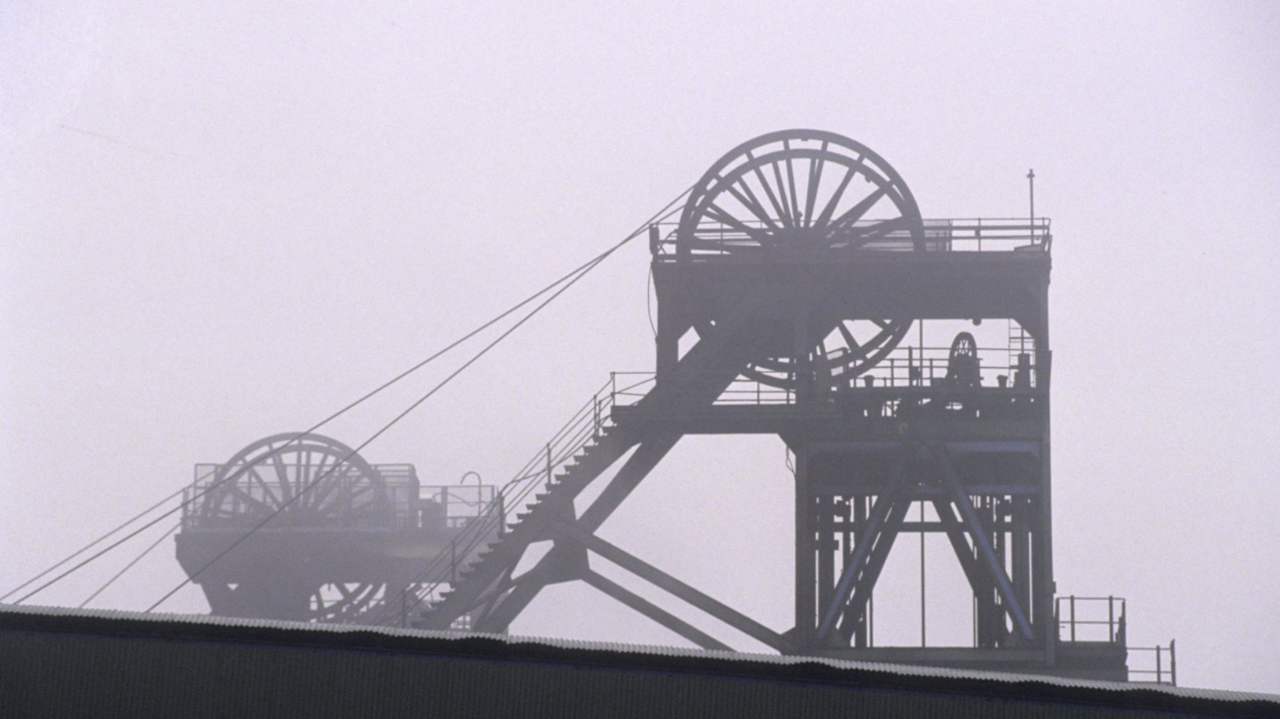Investors in quashed coal mine sue government

Plans for a new coal mine in Whitehaven were quashed by the High Court last year
- Published
Investors in plans to build a new coal mine are suing the UK government for compensation after the project fell through.
West Cumbria Mining (WCM) had been granted permission by the previous Conservative government to build the facility in Whitehaven, Cumbria, but a High Court judgment quashed the ruling last year over environmental concerns.
Now the British company and its Singaporean investor, Woodhouse Investment Pte, are suing the government through an international trade court in a process known as investor-state dispute settlement (ISDS).
The government said it did not comment on ongoing legal proceedings. WCM and Woodhouse Investment have been approached for comment.
Information published by the International Centre for Settlement of Investment Disputes shows Conservative MP Geoffrey Cox is representing the companies in the case.
The BBC has approached Sir Geoffrey, a former attorney general, for comment.
When the Labour Party won the general election, the government set a deadline for WCM to decide whether it wanted to continue its planning permission application, but the company dropped the plans.
'Potential for huge compensation'
The ISDS is a system built into trade agreements between countries which allows investors to sue governments if they believe they made unfair decisions.
While the process does not have the power to reverse the coal mine decision, the government could be asked to pay compensation.
No further details have been released on the specifics of the claim brought to the court by WCM and Woodhouse Investment.
Campaigners Global Justice Now said ISDS were increasingly used to "challenge necessary climate action" and they are calling for the government to withdraw from such agreements.
Cleodie Rickard, trade campaign manager at the organisation, said while details of how much WCM was claiming had not been disclosed, the compensation awards could be "enormous".
Global ISDS Tracker, a website which pulls together data from known ISDS cases, shows the last successful challenge submitted by a company for a mining project, saw Turkey ordered to pay $4.4m (£3.2m) to investors in 2023.
Between 1998 and 2023, the tracker shows 22 cases out of 123 were decided in favour of investors, with $7.5bn (£5.5bn) awarded to them.
Ms Rickard said the concern was not just over the amount of compensation the UK government might be asked to pay "out of the public purse", but also for the high legal costs involved in representing itself.
She said: "What investment treaties with ISDS do is freeze in time an investors' special rights to expect to make a certain amount of profit in another country, which is fundamentally at odds with that country's sovereign right to maintain a dynamic policy environment to legislate in the public interest and respond to crises."
The government declined to comment on whether it would review its stance on ISDS.
Follow BBC Cumbria on X, external, Facebook, external, Nextdoor and Instagram, external.
Get in touch
Do you have a story suggestion for BBC Cumbria?
Related topics
- Published4 April

- Published13 September 2024

- Published15 November 2024
